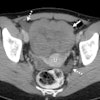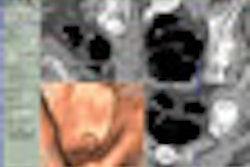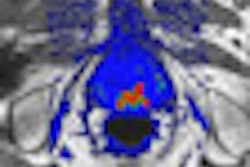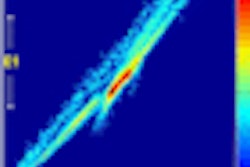Dear AuntMinnie Insider,
According to our exclusive early results, the winner is -- virtual colonoscopy! Or so it might appear for women who have had a hysterectomy and need colon cancer screening.
In a new study, researchers from the battleground state of Pennsylvania examined patients with failed or incomplete colonoscopy. They found a large number of failed colonoscopies among women who had undergone hysterectomy. Are anatomic changes the culprit? Should women who have had a hysterectomy go straight to virtual for their screening needs? Find out more in this issue's Insider Exclusive.
The political landscape continues to shift in the direction of widespread VC screening. Last week the president of the American Gastroenterological Association (AGA) Institute paid a visit to virtual colonoscopy's biggest meeting and endorsed the noninvasive exam for screening, albeit with a long list of caveats.
On the other hand, the U.S. Preventive Services Task Force (USPSTF) did not include virtual colonoscopy among its recent recommendations. Ironically, said attendees of the International Symposium on Virtual Colonoscopy, the reason for USPSTF's denial centered on the allegedly unproven benefits of searching for extracolonic abnormalities in virtual colonoscopy datasets. Additional recommendations on VC's status in the U.S. are expected at a November 19 public meeting to be held in Baltimore.
In other news, a new analytic model by Dr. Perry Pickhardt and colleagues from the University of Wisconsin concludes that surveillance of small colorectal lesions is both safe and cost-effective, based in part on the research team's own data on the natural history of polyps. The short-term surveillance of 6- to 9-mm polyps, a practice that remains controversial, may be essential to the cost-effectiveness of widespread virtual colonoscopy screening.
At the American College of Radiology Imaging Network (ACRIN) meeting held last month in Arlington, VA, researchers presented one of the first studies to take a closer look at data from the long-awaited National CT Colonography Trial results published September 18 in the New England Journal of Medicine.
The new study, which looked at reader training, found that focused training improved reader performance in direct and quantifiable ways.
Finally, researchers in Israel have developed a promising new electronic cleansing method based on dual-energy CT. By distinguishing the attenuation properties of barium- and iodine-based tagging agents from those of colonic mucosa, the group made fecal residue disappear, facilitating the use of noncathartic cleansing methods that patients prefer.
We invite you to scroll down for the rest of the news in the Virtual Colonoscopy Digital Community. And then vote!




















